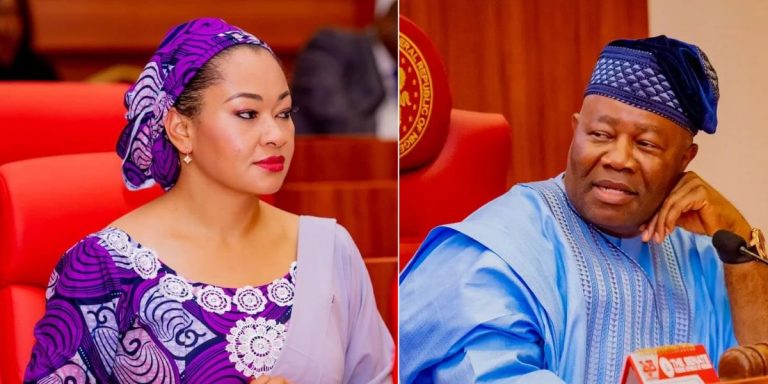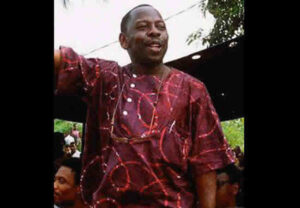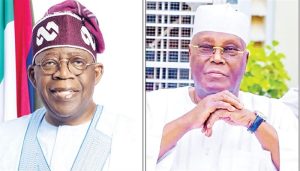
…Ex-INEC Official Compares Lawmaker’s Recall to Holding Three Elections
Senator representing Kogi Central, Natasha Akpoti-Uduaghan, has accused Senate President Godswill Akpabio and former Kogi State Governor Yahaya Bello of engineering a recall effort against her using fraudulent constituents.
On Tuesday, supporters from the five local government areas of Kogi Central gathered in Ihima, Okehi Local Government Area, to welcome the PDP senator despite a government-imposed ban on rallies and processions.
In a statement issued yesterday, Akpoti-Uduaghan challenged Bello to disclose the source of the alleged fake names being used to initiate her recall.
“All available evidence and facts point directly to Bello as the mastermind behind this recall attempt,” she asserted.
She further accused the former governor of waging a prolonged political vendetta against her, citing past incidents, including alleged attacks orchestrated against her before and during the 2023 general elections.
“I advise the former governor to focus on clearing his name regarding allegations of fraud involving N89.2 billion instead of attempting to subvert the mandate given to me by the people of Kogi Central,” she stated.
“His hands are already full with corruption allegations, yet he remains determined to frustrate the will of the people. His past actions—sponsoring numerous attacks against me during the last general elections—are well documented. This recall move is just another ploy to undermine the people’s decision.”
Meanwhile, former INEC Director of Voter Education, Oluwole Osaze-Uzzi, has likened the recall process for lawmakers to conducting three elections.
Speaking on an Arise TV programme on Wednesday, Osaze-Uzzi emphasized the extensive financial and logistical demands of a recall, starting with signature verification at the polling unit level.
“Money plays a role in every stage. INEC will incur significant expenses because, if the process goes through to completion, it’s similar to conducting three separate elections,” he explained.
He noted that verification officers must go into the field to authenticate signatures, requiring extensive mobilization, printing, personnel deployment, and logistics.
Osaze-Uzzi also highlighted Nigeria’s historically low voter turnout, which rarely exceeds 50 percent, making the recall process even more complex.
“For the process to proceed, those who signed the petition must confirm their signatures, necessitating additional mobilization. INEC, the lawmaker facing recall, and the petitioners will all have to mobilize resources. And after all that, INEC must demobilize again—everything costs money,” he added.









